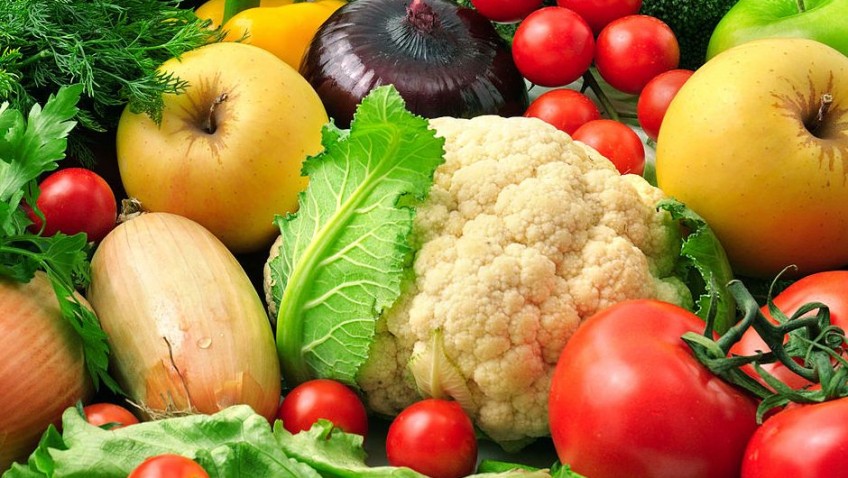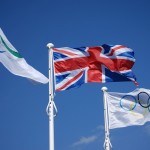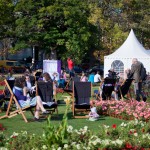In Britain, thanks have been given for successful harvests since pagan times. Harvest festival is traditionally held on the Sunday near or of the Harvest Moon. This is the full Moon that occurs closest to the autumn equinox (22 or 23 September). The celebrations on this day usually include singing hymns, praying, and decorating churches with baskets of fruit and food in the festival known as Harvest Festival, Harvest Home, Harvest Thanksgiving or Harvest Festival of Thanksgiving.
There are many pagan rituals surrounding the harvest and the making of corn dollies is one. A corn dolly was supposed to have been the spirit of the corn goddess and dates back hundreds of years.
People believed that the corn goddess lived in the corn and would die when the corn was harvested unless some of it was saved. So to make sure the corn goddess stayed alive until next spring sowing, a corn dolly was made from the last sheaf of corn for the corn goddess to rest in until the next.
Harvest Festival used to be celebrated at the beginning of the Harvest season on 1 August and was called Lammas, meaning ‘loaf Mass’. Farmers made loaves of bread from the new wheat crop and gave them to their local church. They were then used as the Communion bread during a special mass thanking God for the harvest. The custom ended when Henry VIII broke away from the Catholic Church, and nowadays we have harvest festivals at the end of the season.
Michaelmas Day is traditionally the last day of the harvest season.
The feast of Saint Michael the Archangel is celebrated on 29 September. St. Michael is the patron saint of the sea and maritime lands, of ships and boatmen, of horses and horsemen. He was the Angel who hurled Lucifer (the devil) down from Heaven for his treachery.
Curfew
Michaelmas used to be a popular day for the winter night curfew to begin – the first hint that winter was on the way. Curfew took the form of a tolling of the church bell, usually one strike for each of the days of the month that had passed in the current year and generally rung at 9pm.
The word curfew may derive from the French word couvre feu, meaning ‘cover fire’. Curfew was the time when household fires were supposed to be doused. The bell was tolled every night, apart from Sunday, until Shrove Tuesday.
Goose Day
Michaelmas Day is sometimes also called Goose Day. Goose Fairs are still held in some English towns, but geese are no longer sold. A famous Michaelmas fair is the Nottingham Goose Fair which is now held on or around 3 October.
A Great custom in England was to dine on goose on Michaelmas. One reason for this was said to be that Queen Elizabeth I was eating goose when news of the defeat of the Armada was brought to her. In celebration she said that henceforth she would always eat goose on Michaelmas Day. Others then followed her lead.
Quarter Day
Another suggestion, why goose are eaten, is that, as Michaelmas Day was a Quarter Day, rents were due and bills had to be paid. Tenants seeking delay of payment traditionally bought a goose as a present for their landlord to help seek his indulgence. Geese were supposedly very tasty at this time of year.
Labourers for hire
On the day after Michaelmas, every year agricultural labourers presented themselves, along with their tools, at the nearest market town. There they offered themselves for hire for the coming year. A fair followed the hirings and this was called ‘Mop Fair.
Michaelmas Superstitions
Folklore in England holds that the devil stamps on bramble bushes or as they say in some areas, spits on them. Therefore one must not pick blackberries after Michaelmas.
The reason for this belief has ancient origins. It was said that the devil was kicked out of heaven on St Michael’s Feast Day, but as he fell from the skies, he landed in a bramble bush! He cursed the fruit of that prickly plant, scorching them with his fiery breath, stamping on them, spitting on them and generally making them unsuitable for human consumption. Legend suggests he renews his curse annually on Michaelmas Day and therefore it is very unlucky to gather blackberries after this date.
If the breast bones of the goose are brown after roasting the following winter should be mild, but if the bones are white or have a slight blue hue then the winter will be severe.
The Victorians believed that trees planted on this day would grow especially well.
In Ireland and northern England, it was thought that if you ate goose at Michaelmas you would have good luck for the rest of the year.




